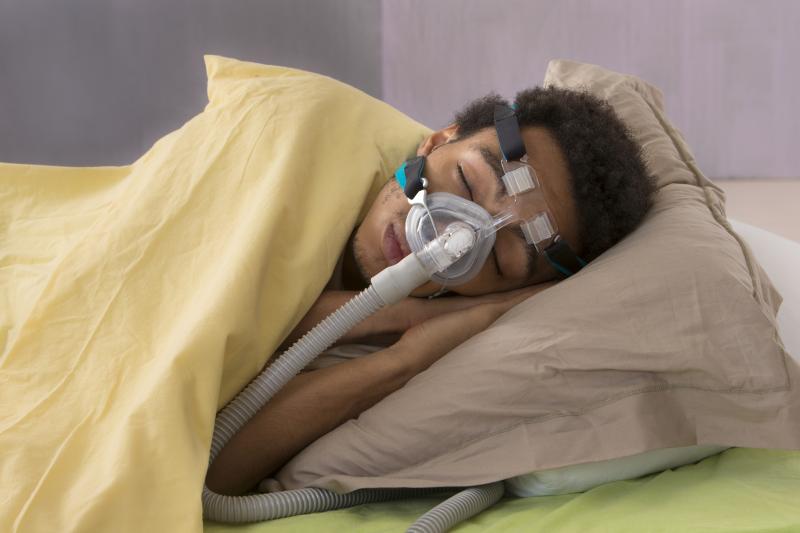Sleep’s important role in health is becoming more recognized by both physicians and the general population, with sleep insufficiency being linked to chronic diseases such as hypertension, diabetes, depression, and obesity. One of the most common and serious sleep disorders is sleep apnea. In recognition of Sleep Awareness Week, Pulmonologist Brian J. Walsh, DO, who serves as the medical director of Bayhealth Sleep Center, Smyrna, debunks common sleep apnea myths and misconceptions and shares other insight into sleep’s role in overall well-being.
Sleep Apnea Myth and Misconception 1: Thinking you don’t have it
People that have sleep apnea don’t always realize they have the condition. “Most people think they sleep fine and don’t have sleep apnea,” said Dr. Walsh. “But their bed partners and others know otherwise. For example, when a patient is waking up from anesthesia, a nurse may notice sleep apnea symptoms.”
Sleep Apnea Myth and Misconception 2: You must be overweight to have it
Although weight is a risk factor for sleep apnea, people with normal body dimensions and compositions can have it too, says Dr. Walsh.
Sleep Apnea Myth and Misconception 3: There are quick fixes and temporary sleep apnea treatments
The truth is there aren’t any quick fixes or temporary treatments for sleep apnea. “Normally treatment is long term and you must stick with it for the rest of your life to effectively manage the condition,” explained Dr. Walsh. “There are a few exceptions to the rule, of course. For example, sometimes people who lose a large amount of weight through bariatric surgery are able to come off their CPAP machines.”
Why Sleep Is Important
Dr. Walsh says many of his patients attribute aging as the reason they feel fatigued, when in fact the most common cause is not getting enough sleep. “Research has shown that we need an average of seven to eight hours of sleep each night, but most people average only six and a half hours,” he said. “That’s because people often sacrifice sleep for other things, not realizing how that will affect their bodies the next day.”
According to Dr. Walsh, there are several reasons we need a good night’s sleep. On a chemical level, the longer we’re awake, the more build-up of hormones and other chemicals. The only way to lower these levels is through sleep. “When we sleep, things get regenerated, memories get consolidated, and there’s a period of overall healing of the body,” he explained.
Lack of sleep also affects our appetite. “When you’re tired, you eat more and crave the foods that we know we should avoid such as high-fat, high-calorie foods,” said Dr. Walsh. “Together, this makes us more susceptible to overeating and weight gain, and putting on more weight only worsens sleep apnea and increases risk if you don’t already have it.”
If you think you may have sleep apnea or another sleep disorder, talk to your physician. Bayhealth Sleep Centers, which are fully accredited by the American Academy of Sleep Medicine and are open seven days a week, offer overnight sleep studies and home studying testing (when medically appropriate), both of which are available by physician referral. Visit Bayhealth.org/Sleep-Care to learn more. If you need a physician, you may find one at Bayhealth.org/Find-A-Doc or by calling 1-866-BAY-DOCS (3627).
























































